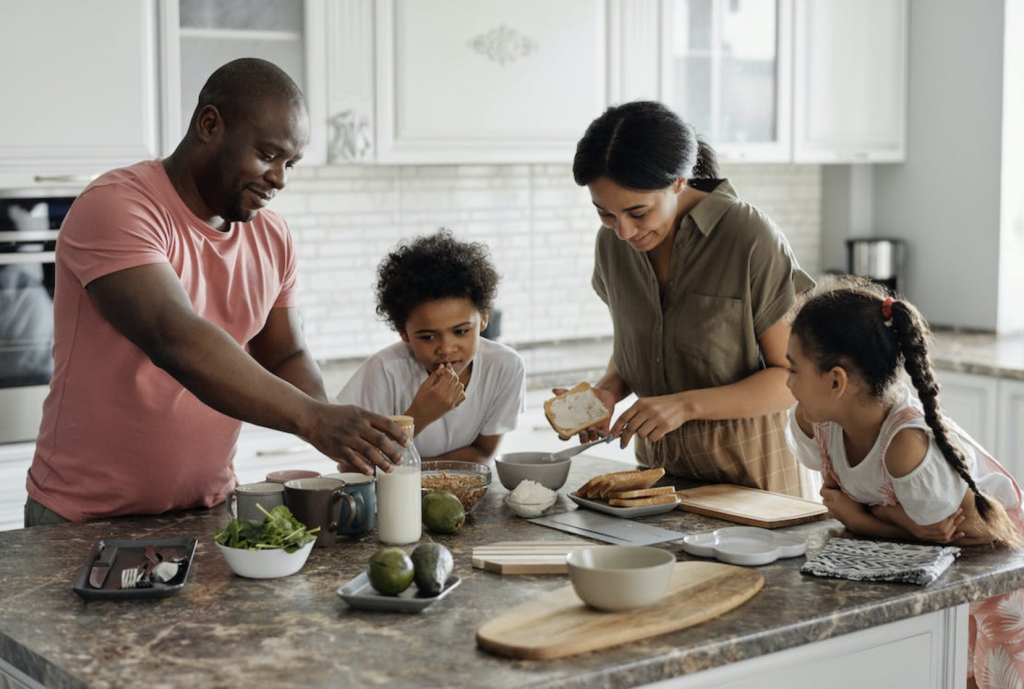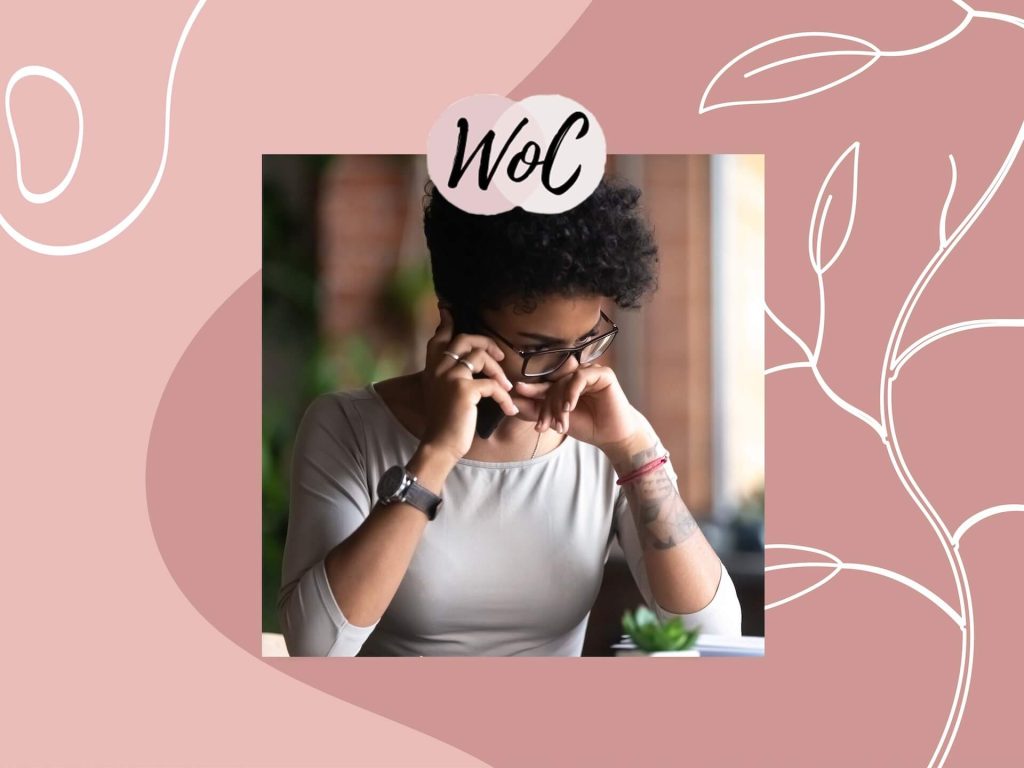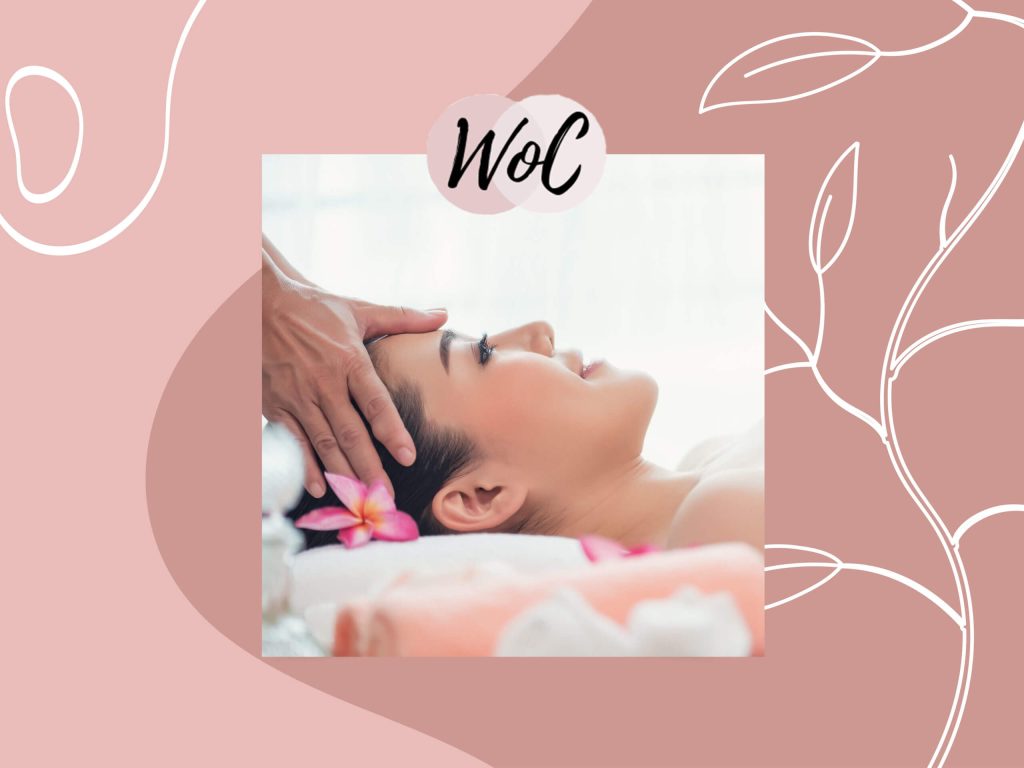Have you ever felt the longing to be a part of something bigger than yourself? Have you searched for groups that share the same values and visions as you? In your journey to healing and growth, have you ever felt alone? There is so much untapped power in community spaces in promoting mental health and overall wellness. These spaces can take many forms, from parks and public squares to community centers and online forums, but they all share a common purpose: to provide a safe and welcoming environment where people can come together, connect with one another, and feel a sense of belonging.
As women of color- we need spaces like these to unapologetically be our authentic selves, receive energy and support from and uplift other community members, and affirm our right to healing and wellness. Women of color continue to deal with some of the most deeply severe obstacles and barriers as we navigate our professional careers—from racial and gender micro aggressions, wage gaps, both hypervisibility and invisibility, to code-switching, as we occupy positions in predominately white settings. Many women of color experience burnout and exhaustion as we work harder to get to the same places as our white counterparts- which is why places for us to gather as community and experience healing and support is vital. To build community at our wellness house, click here: Events | WOC Therapy
We will explore the importance of community spaces for mental health and wellbeing, examples of community spaces, and examine some of the key benefits they offer. We will also discuss some ways in which we can create and maintain these spaces, with the upcoming expansion of WOC Therapy.
Connection and Social Support
Community spaces provide an opportunity for people to connect with others who share common interests, passions, and life experiences. Social support is a key factor in mental health and wellbeing, and community spaces are an important source of this support. They offer a space where people can build relationships and find support during times of stress or crisis. They may also offer resources and services, such as support groups or counseling services, to help people manage mental health concerns.
Sense of Belonging
Feeling a sense of belonging is a basic human need, and community spaces can help fulfill this need by providing a place where people can feel accepted and valued. When people feel like they belong to a community, they are more likely to participate in activities and events, and they are more likely to seek out support when needed. This sense of belonging can also improve self-esteem and overall wellbeing.
Physical Health
Community spaces can also promote physical health by offering opportunities for exercise and outdoor activities. Parks, walking trails, and other outdoor spaces provide a place for people to get active and enjoy the benefits of spending time in nature. This can improve physical health, as well as mental health and overall wellbeing.
At WOC Therapy, we believe healing must take place mentally, physically, and spiritually. With our expansion, we are planning on providing more services and retreats that focus on the physical component of wellness.

Diversity and Inclusion
Community spaces are also important for promoting diversity and inclusion. By providing a safe and welcoming place for people of all races, ethnicities, genders, and sexual orientations, these spaces help to break down barriers and promote understanding and acceptance. This diversity can also help to create a rich and vibrant community that is more resilient and adaptable to change.
As a Black woman, it is critical to find a space that values both my blackness and my womanhood—a place where I can be affirmed and validated. Through the WOC Wellness Center, I hope to be able to provide this space for other Womxn of Color who are seeking community healing spaces.
Online Spaces
In addition to physical spaces, online communities have become increasingly important in promoting mental health and wellbeing. These spaces allow people to connect with others from all over the world, and they offer a place for support and guidance. However, it is important to be cautious when participating in these communities, as they can sometimes be emotionally taxing or even harmful. It is essential to prioritize mental health and seek out positive and supportive online communities.
Third places
‘Third place’ is a term coined by sociologist Ray Oldenburg and refers to places where people spend time between home (‘first’ place) and work (‘second’ place). They are locations where we exchange ideas, have a good time, and build relationships. Third places are more relaxed public environments where people can meet and interact in a range of different ways.
In Oldenburg’s 1989 book The Great Good Place, he describes the third place as “the heart of a community’s social vitality”, and outlines eight key characteristics that one should have. These are:
- Neutral ground
- A leveling place (meaning no focus on an individual’s status)
- A home away from home
- Conversation as the main activity
- A playful mood
- A low profile
- Accessibility
- Regular patrons
Third places “host the regular, voluntary, informal, and happily anticipated gatherings of individuals beyond the realms of home and work.” Providing the foundation for a functioning democracy, these spaces promote social equity by leveling the status of guests, providing a setting for grassroots politics, creating habits of public association, and offering psychological support to individuals and communities.
In his book, Oldenburg writes, “The character of a third place is determined most of all by its regular clientele and is marked by a playful mood, which contrasts with people’s more serious involvement in other spheres. Though a radically different kind of setting for a home, the third place is remarkably similar to a good home in the psychological comfort and support that it extends…They are the heart of a community’s social vitality, the grassroots of democracy, but sadly, they constitute a diminishing aspect of the American social landscape.” He explains how in the US, third places are losing traction and becoming more consumerist and commercial, resulting in an “ever-increasing retreat into privacy”.
He goes on to say, “Life without community has produced, for many, a life style consisting mainly of a home-to-work-and-back-again shuttle. Social well-being and psychological health depend upon community. It is no coincidence that the ‘helping professions’ became a major industry in the United States as suburban planning helped destroy local public life and the community support it once lent.”
The key in finding a third place is to find somewhere you feel safe and welcome. Your third place should come with a sense of ease and offer respite from the world without removing you from it altogether.
The WOC Wellness Center
This fall, the Womxn of Color Wellness Center is opening its doors, providing teens and women of color access to counseling, energy healing, yoga, plant medicine retreats, and more. Womxn of color are transforming the world in remarkable ways, but we still face disproportionate rates of depression, anxiety, and physical illness.
The new WOC Wellness Center is committed to merging conventional therapy with culturally rooted practices such as sisterhood, storytelling, body movement, and plant medicine to heal future generations.
If you would like to support us in our dream of providing a safe community space for womxn of color to gather, heal, and learn together, we would be deeply grateful.
In conclusion, the importance of community spaces cannot be overstated. These spaces provide a sense of belonging, social support, physical health, diversity, and inclusion that are essential for mental health and wellbeing. Whether it is a park, community center, or online forum, these spaces offer an opportunity for people to connect with others and feel like they are part of something larger than themselves. We should encourage the development and maintenance of these spaces, both in our local communities and online, to promote mental health and overall wellness.
Women of color have always been daring, bold, and ambitious—what we haven’t always had is spaces to call our own —spaces where we can simply exist—and spaces that are a source of our own healing and liberation.
These community spaces are critical for allowing us to affirm our right to express our authentic selves. Women of color have become so familiar with navigating predominately white spaces—that we even doubt whether we’re capable of bringing more of ourselves into a room, and many of us don’t know how. We experience disproportionate amounts of imposter syndrome when entering historically white-dominated spaces.
We have largely accepted that assimilation is necessary for career advancement—and this acceptance can be damaging when we forget what it means to bring our whole selves to the workplace and every space we exist in.
My wish for all women of color is to find your space of collective liberation and healing. Your mind, body, and soul depend on it. And if you don’t have the opportunity to experience this right now, I hope that starting in the fall, WOC Wellness Center can be that place for you.


